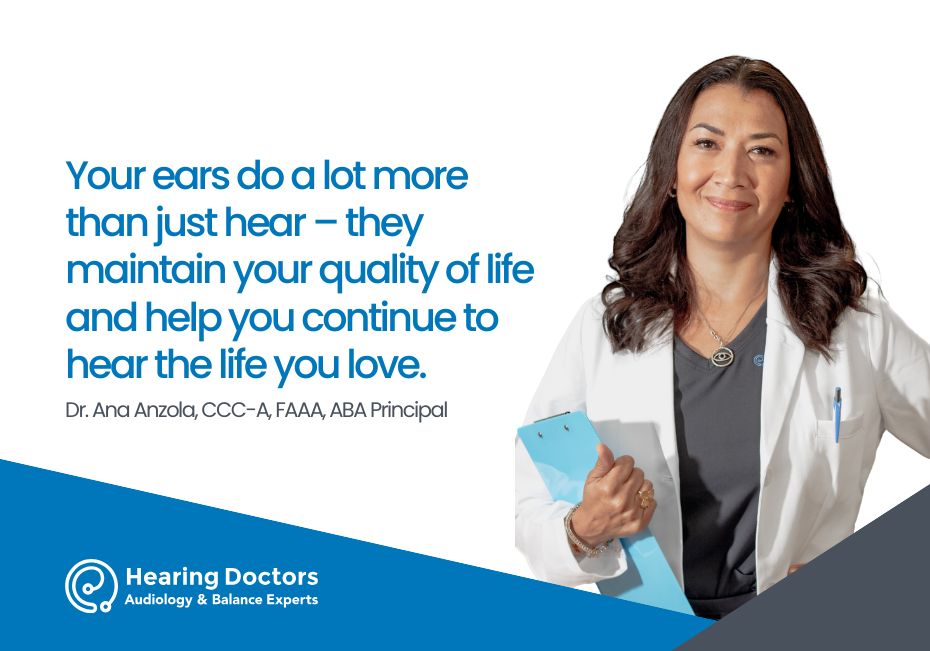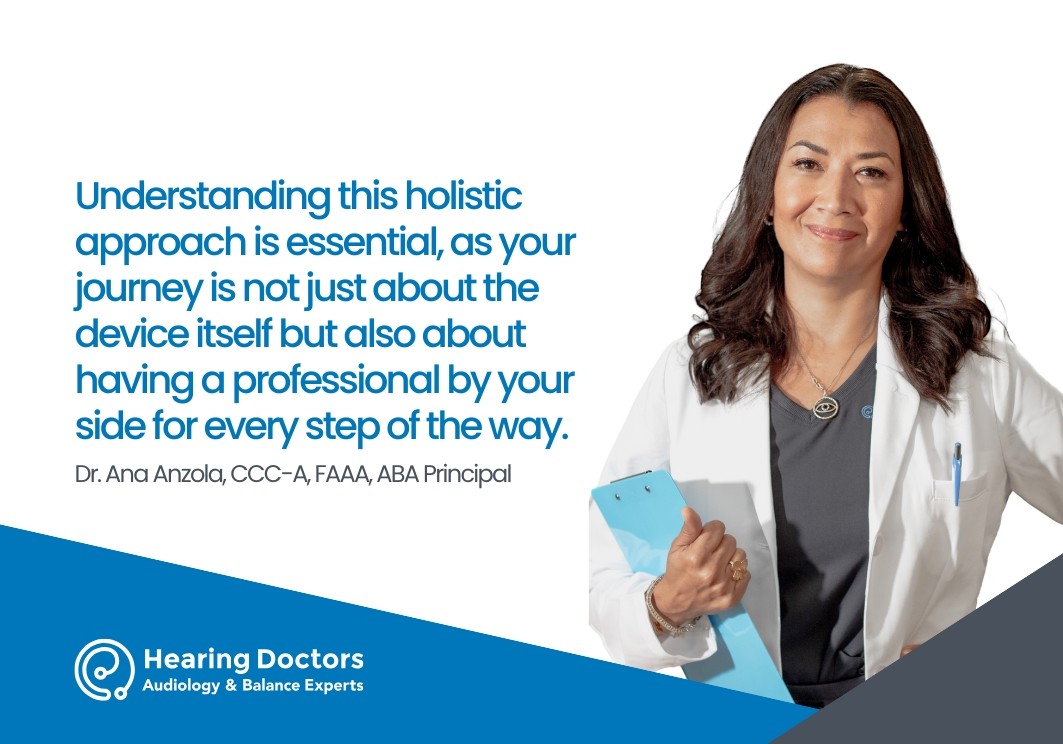Dr. Ana
Anzola, CCC-A, FAAA, ABA Principal
If you’ve been diagnosed with a hearing loss, you know that there are a variety of options when it comes to hearing aids. Which hearing aid is right for you will depend on several factors including your lifestyle and the severity of your hearing loss. When discussing hearing aid options with your audiologist, here are a few things to consider:
Dexterity Matters
Health conditions like Parkinson's disease and diabetes can cause shaking, numbness and tingling in your fingers. For people who struggle with fine motor skills, smaller hearing aids with tiny batteries and volume controls can be difficult to handle. In such cases, a better option might be behind-the-ear (BTE) hearing aids. These devices are slightly larger, and easier to manage. If you need help putting in your hearing aids, or changing the batteries, the likelihood that you’ll wear them goes down significantly. Talk to your Doctor of Audiology about your dexterity and make sure you can operate your hearing aids on your own.
How Loud Is Your World?
Do you eat at restaurants often? Do you enjoy live music? Do you go to large conferences for work? Noisy environments offer unique challenges to people with hearing loss, but some of those challenges can be addressed with the right hearing aids. Almost all hearing aids include noise-reduction technology to dull background sounds in loud environments, and directional microphones to focus on the speech you’re trying to listen to. However, some hearing aids offer better features or accessories to help you in noisy situations. Talk to your audiologist about the noise in your daily life, so the hearing aids you get are perfectly suited for you.
Are You Embarrassed To Wear Hearing Aids?
For many people, acknowledging their hearing loss can be a blow to their self-esteem. Some people say it makes them feel old or diminished in some way, and that wearing a hearing aid would make them look old. But the truth is, hearing loss is extremely common and manageable, and hearing aids today are much more discreet than ever before. Receiver-In-Canal (RIC) style hearing aids have super-thin tubes that are hardly noticeable, while invisible-in-the-canal (IIC) and completely-in-the-canal (CIC) hearing aids are even less visible, hiding fully in your ear, so your friends and colleagues may not even notice that you’re wearing them. Ultimately, wearing a small device will bring you back into the conversation with your friends and loved ones. And that’s priceless.
Being cut off from communicating fully with the people in your life can be frustrating and isolating, and hearing aids can help get you back in the conversation. Talk to your Doctor of Audiology about which hearing aid styles and features are best suited for your lifestyle and type of hearing loss, and don’t let impaired hearing slow you down from living your best life.
Popular Blogs

Jun 3, 2025
Dr. Ana
Anzola, CCC-A, FAAA, ABA Principal
Understanding Types of Hearing Loss: Sensorineural, Conductive, and Mixed

May 21, 2025
Dr. Ana
Anzola, CCC-A, FAAA, ABA Principal
What Impact Is Artificial Intelligence Having on Hearing Aid Technology?

Apr 28, 2025
Dr. Ana
Anzola, CCC-A, FAAA, ABA Principal
Do You Think You’re Too Young for Hearing Loss?

Apr 15, 2025
Dr. Ana
Anzola, CCC-A, FAAA, ABA Principal
The Best Hearing Aids in 2025: Insights From a Doctor of Audiology


